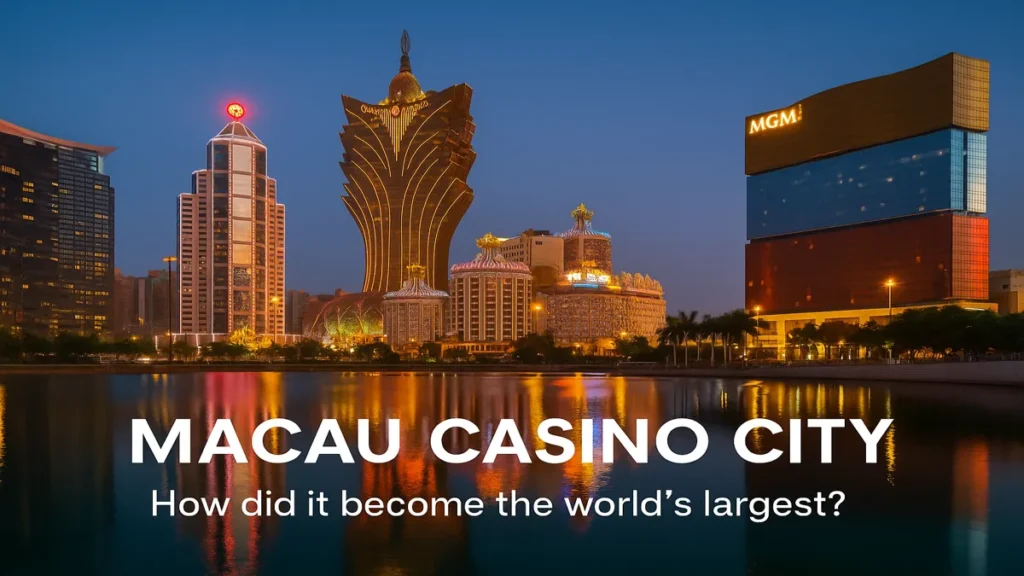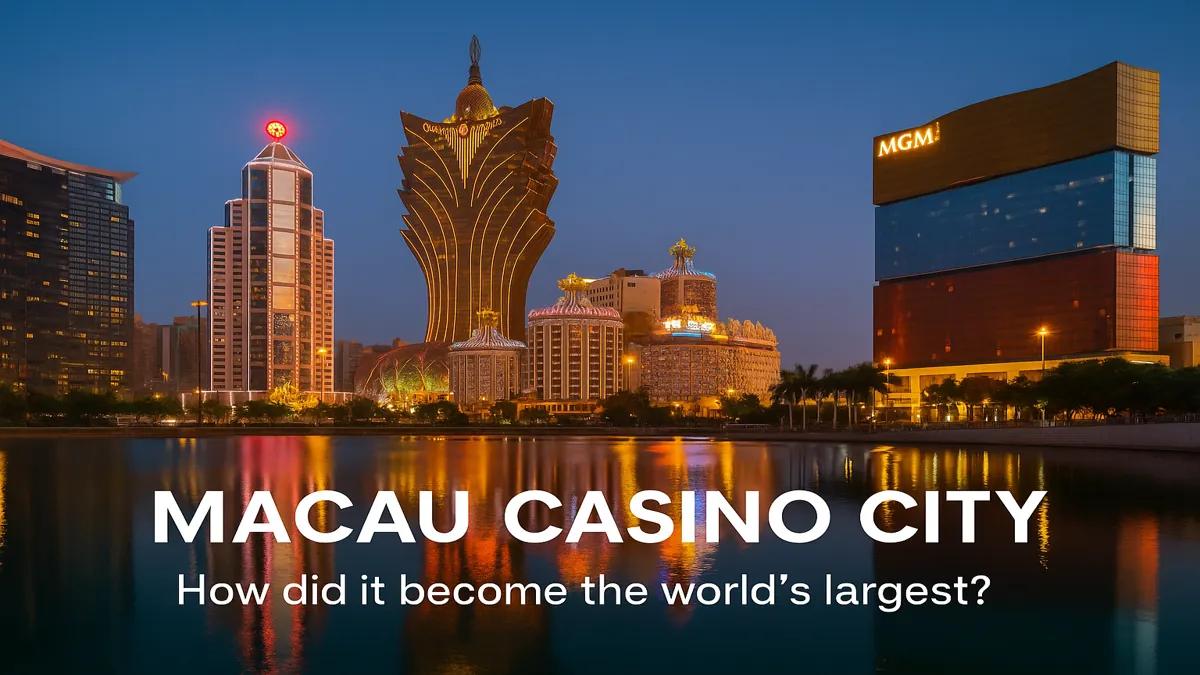The rise of Macau casino city is one of the most remarkable success stories in the global gambling industry. As the world’s most successful Macau casino city, it has transformed from a quiet Portuguese colony into the undisputed “Gambling Capital of the World.” Surpassing even Las Vegas in gaming revenue, this small special administrative region of China evolved into a global casino hub. But how did this transformation happen? This article traces the political, economic, and cultural factors that made Macau casino city the leader in the international gambling industry.

Historical Foundations of Gambling in Macau
Portuguese Colonial Legacy
Gambling was legalized in Macau as early as the 1850s under Portuguese rule. The government introduced a licensing system for gambling houses to raise revenue. This early legalization gave Macau a long-standing cultural and legal framework for gaming that predated most other regions.
Monopoly Era: Sociedade de Turismo e Diversões de Macau (STDM)
In 1962, the Macau government granted a monopoly gambling license to STDM, led by tycoon Stanley Ho. This ushered in decades of controlled casino expansion, infrastructure development, and tourism-focused policies that laid the foundation for future growth.
The Turning Point: Handover and Liberalization
The 1999 Handover to China
After the 1999 handover from Portugal to China, Macau became a Special Administrative Region (SAR), retaining its own legal and economic systems. This autonomy allowed the city to pursue aggressive economic development strategies, including expanding its casino industry.
Liberalization in 2002
In a pivotal move, the Macau government broke STDM’s monopoly and opened up licensing to foreign operators such as Wynn, Sands, and MGM. This ushered in a wave of billion-dollar integrated resorts, global branding, and a massive influx of tourists, especially from mainland China.
Economic and Social Impact of the Casino Boom
Record-Breaking Revenues
By the mid-2010s, Macau’s gaming revenues were more than six times those of Las Vegas. Casinos became the backbone of the local economy, accounting for over 50% of government revenue and employing a significant portion of the workforce.
Tourism Explosion
Macau’s blend of Eastern and Western culture, combined with luxurious casinos and resorts, made it a major tourist destination. The opening of the Hong Kong-Zhuhai-Macau Bridge in 2018 further boosted accessibility.
Challenges and Regulations
While the casino boom brought prosperity, it also raised concerns about overdependence on gambling, social inequality, and crime. The government has since increased regulatory oversight and encouraged diversification into non-gaming entertainment, finance, and culture.
Conclusion: Macau’s Ongoing Evolution
Macau casino city’s rise to global dominance is the result of historical legalization, strategic liberalization, and geopolitical positioning. While it faces challenges in sustaining long-term growth, its legacy as the world’s largest casino city remains secure. The city now aims to balance gaming success with broader economic diversification.
